“The plane is parked on the apron to bask in the sun, and you can hear the sound of money melting.”
Editor’s note: This article comes from the WeChat official account ” qubit “(ID: QbitAI) , author: Guhao Nan.
The route was cut, the passenger plane was idle, the attendance rate continued to slump, and the 5 yuan ticket … The epidemic had the most direct impact on the aviation industry.
At the end of 2019, 24,000 planes are in flight every day around the world. During the epidemic, more than two-thirds of airliners worldwide were grounded.
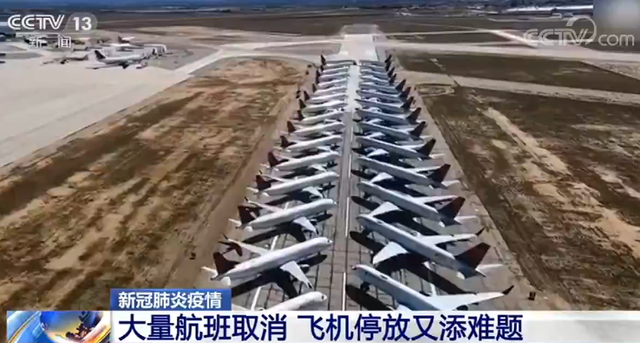
Some airlines that already have “fundamental diseases” have already fallen.
Columbia Airlines (Avianca), the second oldest airline in the world and the second largest airline in Latin America, became the first major airline in the world to go bankrupt due to the epidemic.
The beginning and end of Avianca’s collapse
Avianca failed to meet the bond payment deadline and applied for Chapter 11 bankruptcy protection in New York on Sunday (May 10).
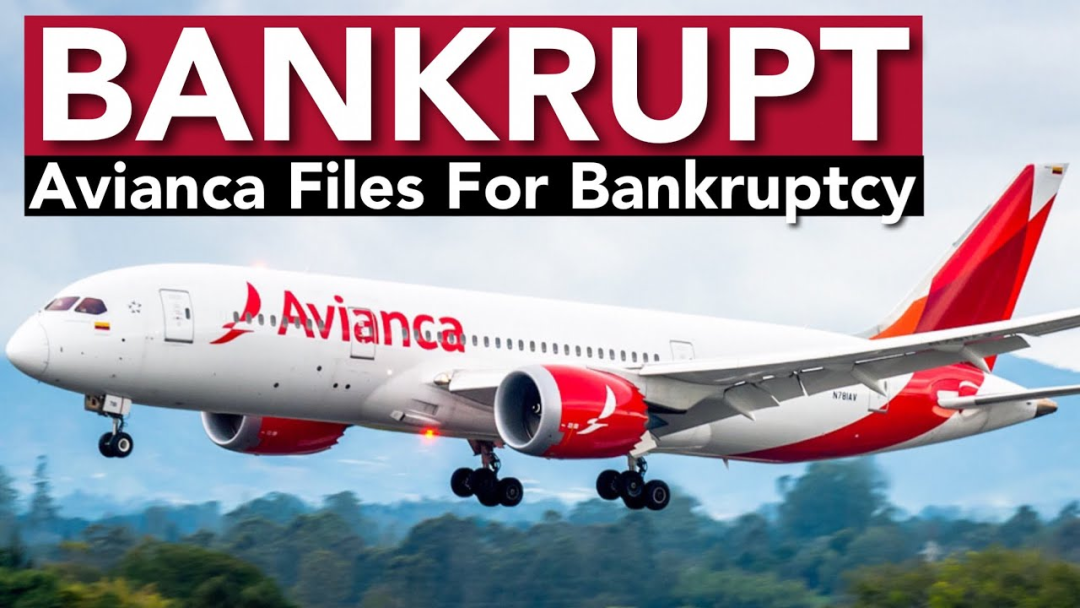
Since late March, Avianca has grounded regular passenger flights, and most of its 20,000 employees have not received wages during the epidemic.
In fact, before the outbreak crisis broke out, Avianca’s business situation was already full of loopholes. As of the end of 2019, the company’s debt has reached 7.3 billion US dollars, and has begun to seek debt restructuring.
At the beginning of 2019, the Avianca Board of Directors admitted at the employee meeting that the company was on the verge of bankruptcy. In 2019, Avianca closed its Brazil and Argentina branches under cash pressure, and 2019 is the 100th anniversary of Avianca.
Last Friday, Avianca ’s stock also fell to a record low of 88 cents, while the company ’s stock peaked in 2014 at $ 18 per share. Standard & Poor’s has upgraded Avianca’s credit rating to CCC-.
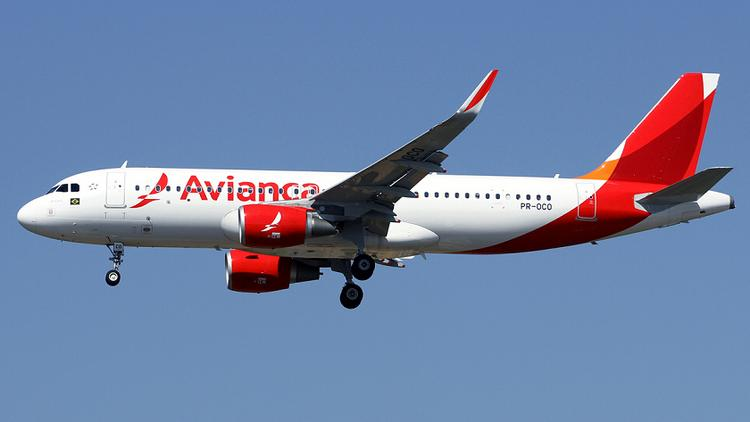
Van der Werff, CEO of Avianca, formed a public relations team in March to lobby the Colombian government, hoping to obtain government bailout funds, but has not received any response.
Actually, Avianca had experienced a bankruptcy more than ten years ago, when a Bolivian oil tycoon, German Efromovich, rescued Avianca.
For more than a decade when Efromovich led Avianca, airlines were heavily in debt. It was not until 2019 that he was expelled from the leadership in a board coup led by United Airlines Holdings Limited (UAL.O). But he still owns the majority stake in the airline.
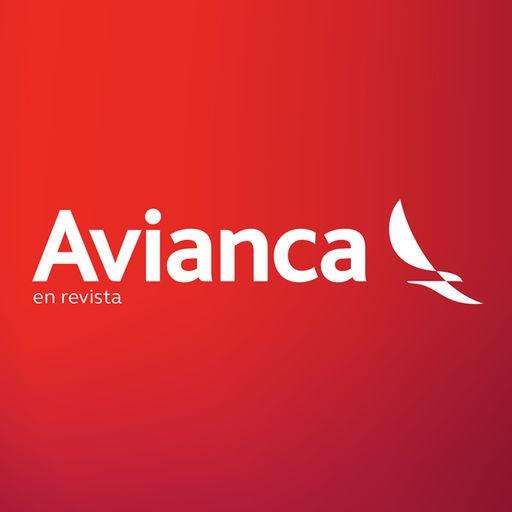
UAL claims that it has lost $ 700 million in loan projects related to Avianca.
Efromovich said he firmly opposed the decision to file for bankruptcy because the management did not discuss with him. But Columbia Airlines ’staff union supported this decision and hoped to resume work as soon as possible.
Avianca’s official website also released a promise that the company will make every effort to resume operations.
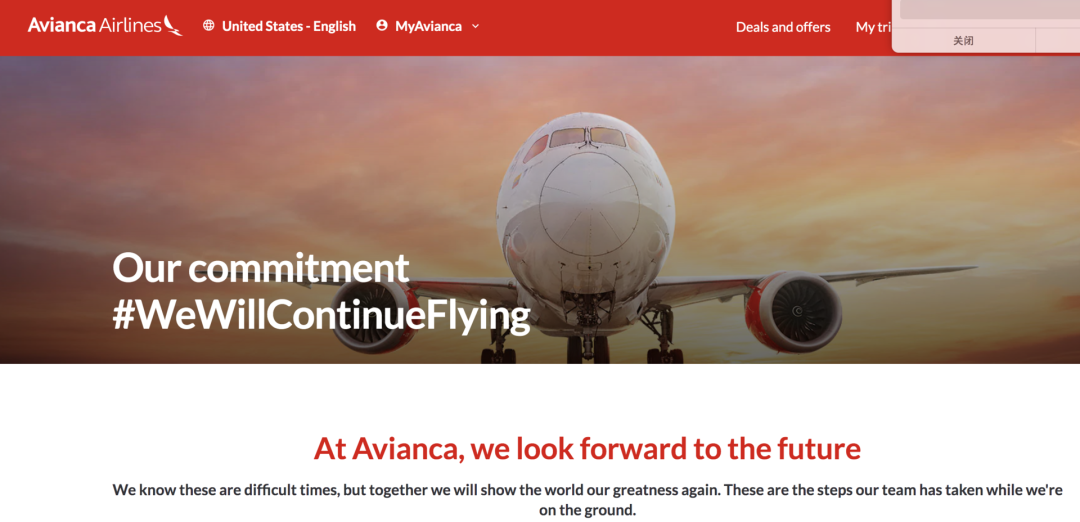
But hopes for resuming work are slim. At the end of last month, KPMG, the company responsible for Avianca’s financial audit, revealed that they deeply doubted whether Avianca could persist for another year.
The epidemic spreads all over the world, and airlines are struggling
According to data from the International Air Transport Association, global air traffic in the first quarter decreased by 63% compared with 2019, and airline passenger revenue in 2020 may plummet by US $ 314 billion. And the cost of parking and maintenance is undoubtedly for airlinesThe situation is worse, and this will further adversely affect the aircraft manufacturing industry.
The plane is parked on the apron to bask in the sun, and you can hear the sound of money melting. This analogy in the industry vividly describes the loss of aircraft parking to airlines. Not flying means direct losses.
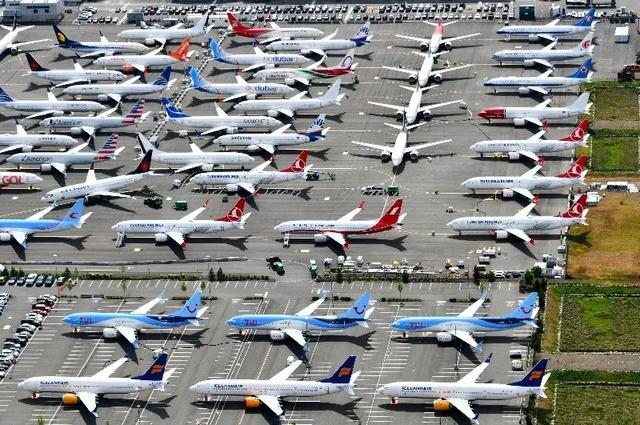
Not long ago, China Southern Airlines, one of the three major airlines in China, held an internal meeting and pointed out that the operation was extremely difficult. Chairman Wang Changshun bluntly said that he would have a hard time.
Including five Airbus A380s, nearly 30 China Southern Airlines wide-body aircraft have been parked at Baiyun Airport for nearly a month, and many China Southern Airlines wide-body aircraft captains have not flown for a month.
Operating fixed costs mainly include aircraft depreciation, management expenses, and financial expenses. These expenses are relatively stable and can be directly converted into daily average fixed costs based on historical data.
According to the statistics of the Civil Aviation Grand Blue Cave, among the three major airlines, the fixed cost of Air China Group is about 101 million yuan / day; the fixed cost of China Southern Airlines Group is about 135 million yuan / day;
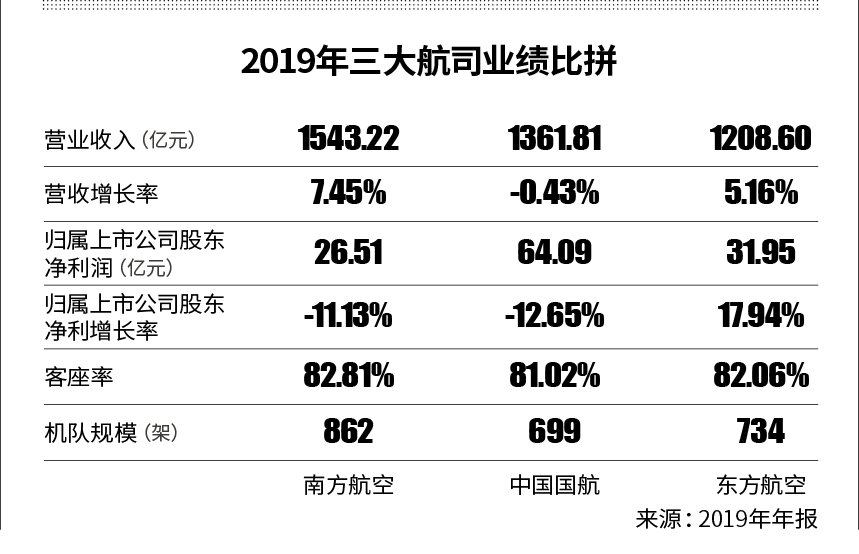
However, if you choose to continue to fly, it will also involve the cost of fuel, take-off and landing fees, crew salaries and catering services. If the passenger load factor cannot keep up, you will still lose money.
The significant reduction in capacity and revenue, coupled with the previous free refund policy, led to a large number of refund requests, and airline cash flow encountered unprecedented pressure. As of March 2, domestic and foreign airlines handled a total of 24.545 million refunds, involving a total face value of 27.1 billion yuan.
According to the financial report of the three major airlines in the third quarter of last year, China Southern Airlines had only 1.193 billion yuan in monetary funds as of September 30, 2019, the lowest value since the company went public. The Air China ’s monetary capital was 8.253 billion yuan, and China Eastern Airlines had 1.549 billion yuan at the end of the reporting period. In addition, private airline Spring Airlines has 8.235 billion yuan; Juneyao Airlines has 2.786 billion yuan.

HNA ’s normal operations with cash flow problems have been affected, and passengers ’free refunds have been delayed. HNA has even proposed a 1: 1.1 voucher payment option for passengers, which can be converted into ticket vouchers for future use.
The unsustainable HNA has finally announced that a working group led by the Hainan Provincial Government to solve the group ’s financial difficulties has been established and will fully assist and promote the Group ’s risk management.
How do airlines save themselves?
In order to alleviate the pressure of cash flow, the most direct way is to increase the capital reserve.
After the outbreak, many airlines issued ultra-short-term financing bills. On February 10, Shenzhen Airlines and Xiamen Airlines rushed to issue the epidemic prevention and control debt on the same day, with a total amount of 1.2 billion yuan, which was used to supplement the company’s working capital, including the payment of aviation fuel and the purchase of wearable aviation materials and parts Liquidity requirements such as expenditures and supplementary liquidity to combat the new coronavirus epidemic. China Eastern Airlines and China Southern Airlines have also issued tens of billions of ultra-short-term bonds.
In addition, during the epidemic period, airlines also generated revenue by providing charter business for governments and enterprises.
However, some insiders admit that the return charter is a product of a special situation, and has high requirements for the enterprise’s customer source organization. The 11 airlines under the HNA Group have all launched government and corporate customer employee charter flights, but as of March 5th, only 36 charter flights have been completed.
After the climax of resumption of work, the civil aviation industry will once again show a sharp decline, and airlines have to continue to cancel flights in batches.
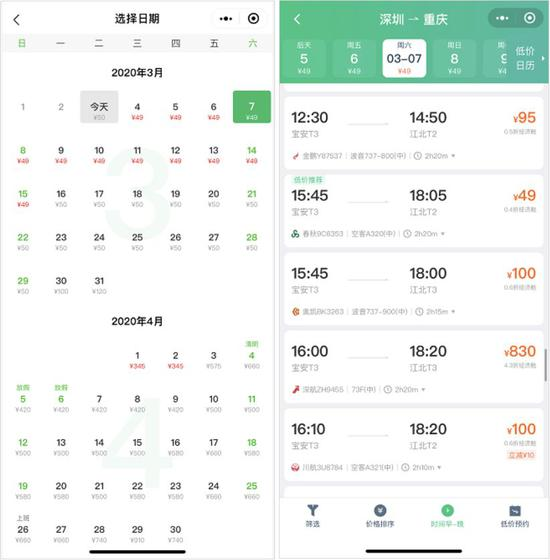
In order to balance between as many flights as possible and the route without losing money, the airline has done a lot of analysis and accurate trade-offs. Many companies cancel 60% -70% of the loss routes.
Reducing costs by reducing wages is one of the possible options for companies. Some airlines adopt a rotation system with unpaid leave.

△ Net Chuanhai Airline ’s “2.4 yuan” salary slip is displayed
Domestic civil aviation experts say that even if the epidemic is completely over, the market will not return to normal levels in the short term.
On the one hand, because the international epidemic has begun to spread, residents ’travel needs will be suppressed again.
On the other hand, because of the “infection of epidemic situation”, residents will not have travel plans in a short time.
Therefore, the scenario of a 49-yuan ticket flying all over the sky will become commonplace and can be seen everywhere in the following days.
The road to self-help in the civil aviation industry is long and arduous.
I only hope that the epidemic will end as soon as possible, and the air ticket will still be the price of the plane, and the price of the mask or mask will be passed by all walks of life as soon as possible.
Reference link:
https://www.reuters.com/article/us-avianca-holding-bankruptcy/colombias-avianca-airline-files-for-bankruptcy-over-coronavirus-impact-idUSKBN22M0N1